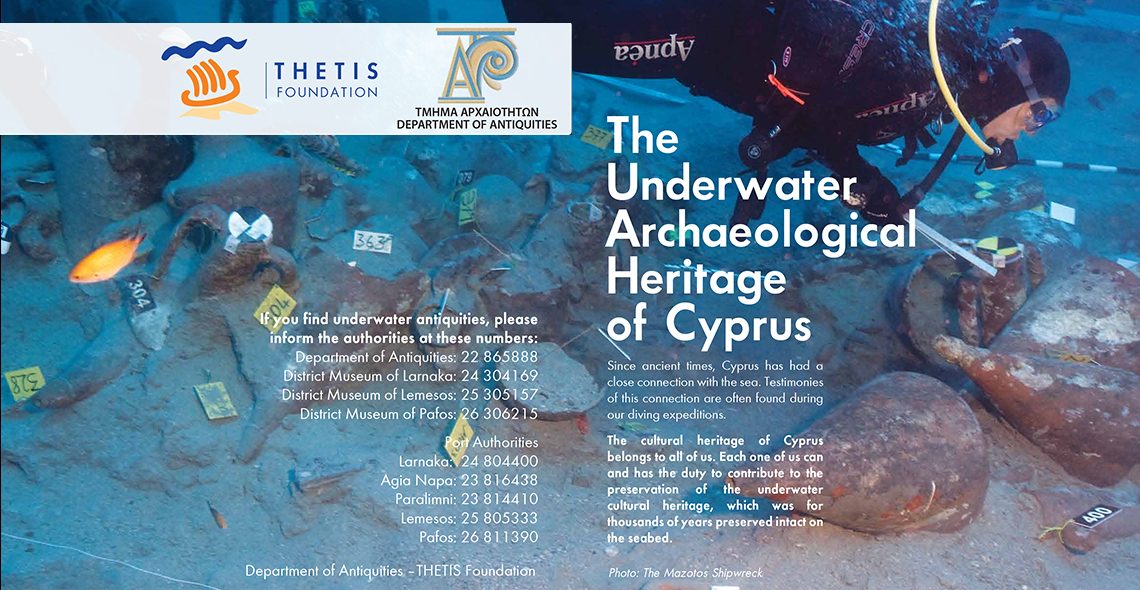A simple step towards cultivating public awareness
Cultivating public awareness on the export of cultural goods from their country of origin: a simple step
Despina Pilides
Curator of Antiquities
Department of Antiquities, Cyprus
The Department of Antiquities, Cyprus, as the relevant government department responsible for the protection and preservation of the cultural heritage of the island, has been deeply involved in the international struggle to prevent illicit trafficking and to repatriate objects which were illegally exported.
Amongst the measures taken, which primarily include adapting national legislation for enhanced protection of the cultural heritage of Cyprus, ratifying international conventions and concluding agreements with other countries for co-operation in limiting illicit trafficking of cultural objects, additional practical measures have also been introduced so as to raise public awareness on actions that might have an adverse effect on the preservation of heritage. Training of police and customs officials as well as providing simple instructions to the public as to the steps to be taken when one comes across ancient objects are particularly useful tools that can go a long way in achieving this goal, without having to depend on demanding infrastructures.
Cyprus, like other countries in the Mediterranean region, has a particularly rich cultural heritage and as a result, is endowed with numerous archaeological sites. In spite of the fact that archaeologically sensitive areas are scheduled monuments and are, therefore, protected by law, the public often comes across ancient objects, during a variety of activities on land or at sea. Visitors to Cyprus and sometimes locals are unaware that it is illegal to remove ancient objects from their context and that, if they come across such finds, they should hand them over to the nearest police station or government museum. For this reason, information panels (Fig.1) have been installed at the points of entry and exit in the international airports of Larnaca and Pafos, informing the public that it is illegal to export cultural objects from Cyprus without permission or to import ancient objects into Cyprus without declaring them at the points of entry. It is also explained that removing objects from their original context causes destruction and loss of valuable information. Reference is also made to the MoU between Cyprus and the U.S.A. as well as other countries noting that these agreements contribute enormously towards the prevention of illicit trading.
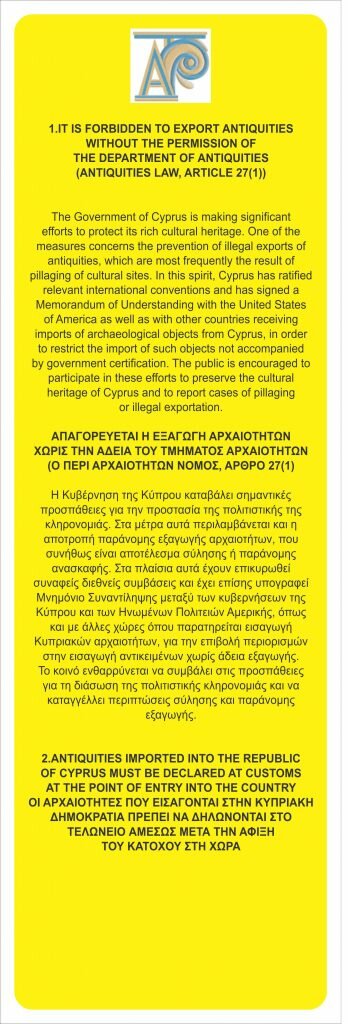 (Fig.1)
(Fig.1)
Similar information panels were and will be installed in ports and marinas. A pamphlet with similar information has also been issued in Greek and in English, in collaboration with the Church of Cyprus, which was circulated in museums, hotels and other public places for public awareness purposes (Fig.2). Another pamphlet was issued for the protection of the underwater cultural heritage, informing divers and fishermen that removal of objects from the bottom of the sea also causes destruction and that objects should be left in situ, even if fragmentary or scattered (Fig.3-4).
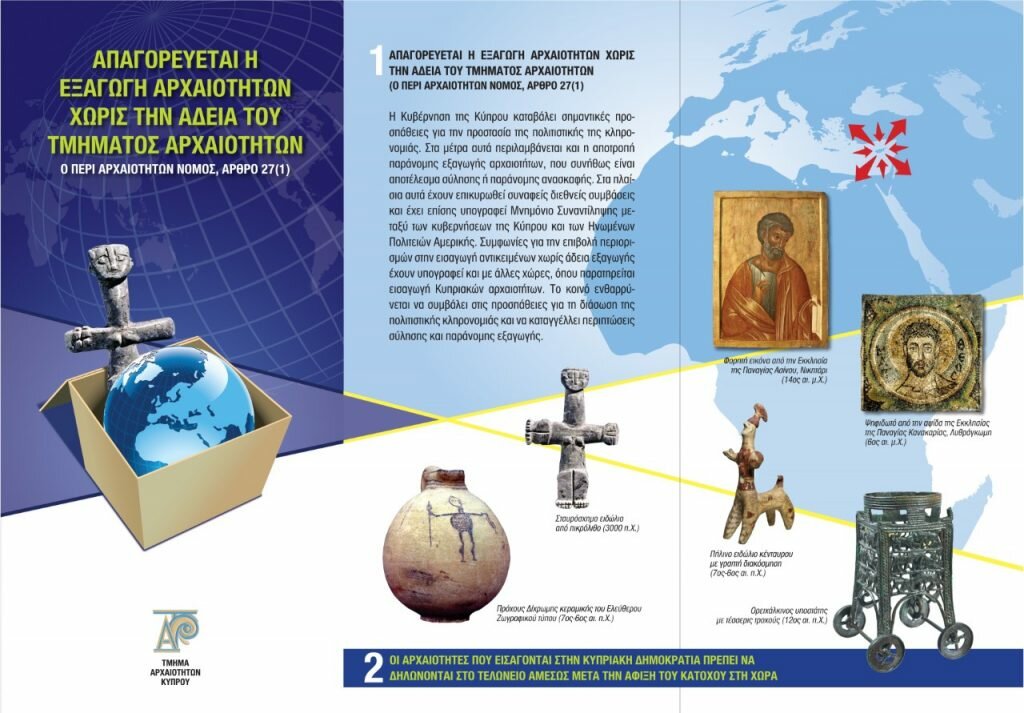 (Fig.2)
(Fig.2)
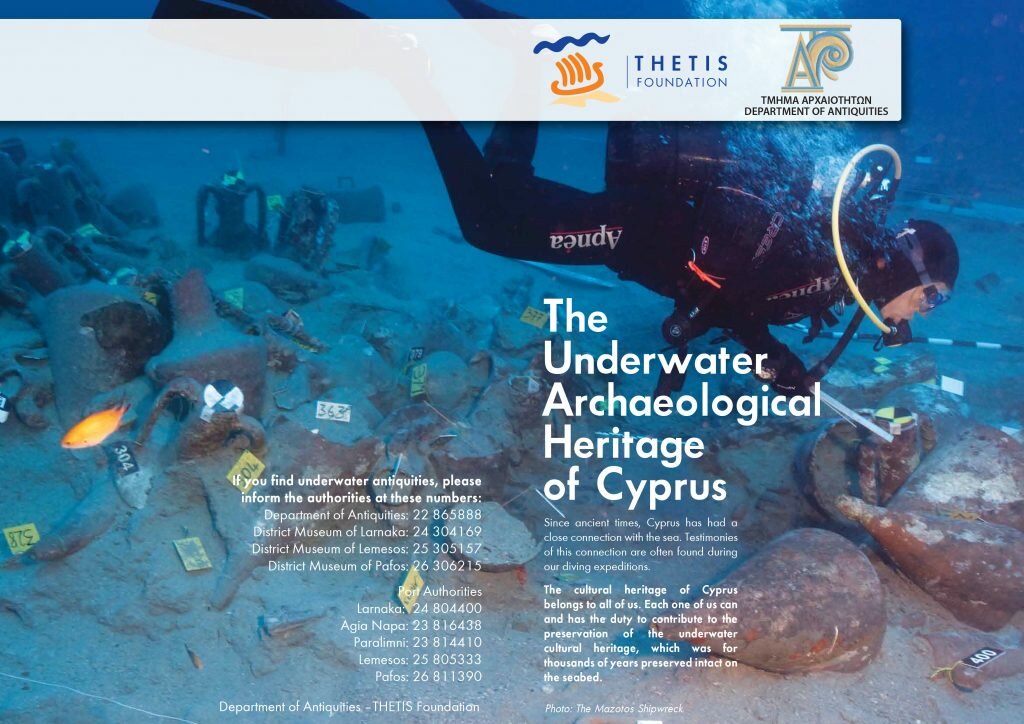 (Fig.3)
(Fig.3)
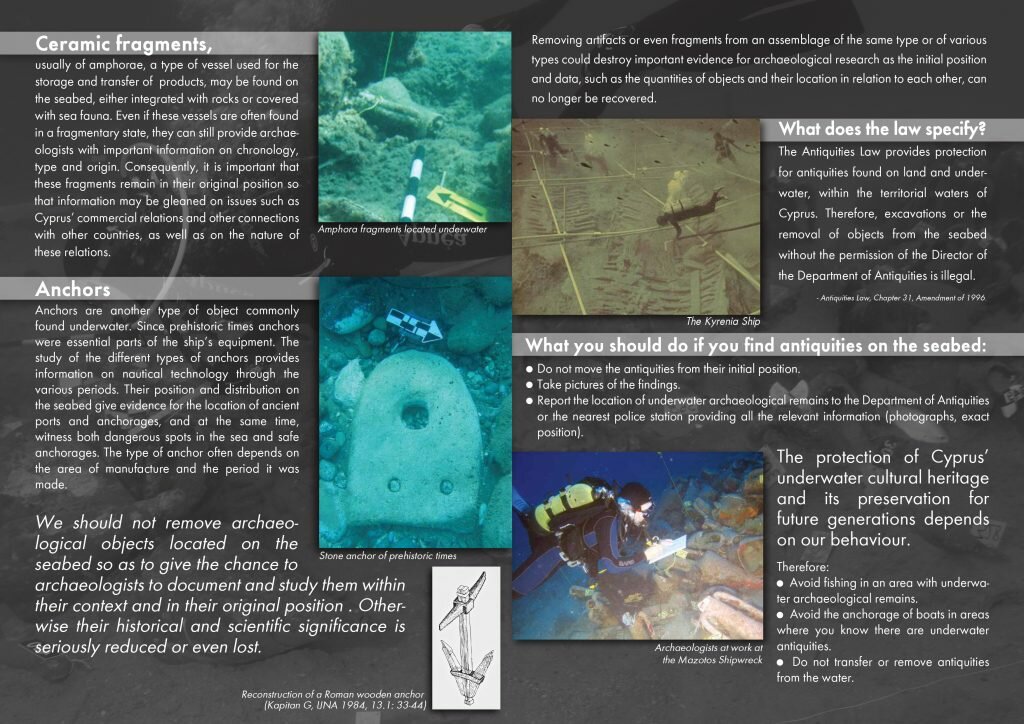
(Fig.4)
Without doubt the public, if correctly informed, can have a significant role in the fight against illicit excavation, illicit export and trafficking of cultural goods and simple steps such as the above, can have a long-reaching effect on the preservation of a country’s cultural heritage.

